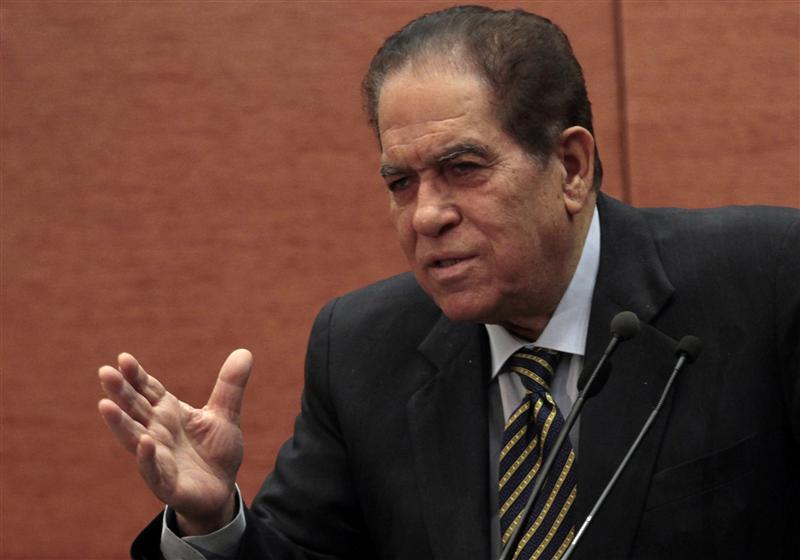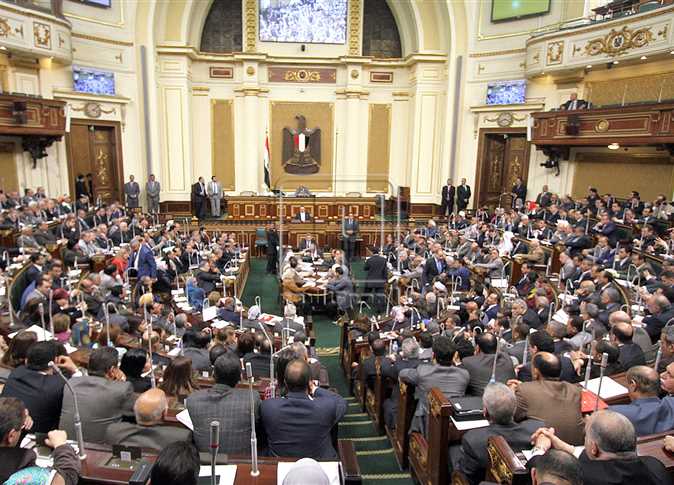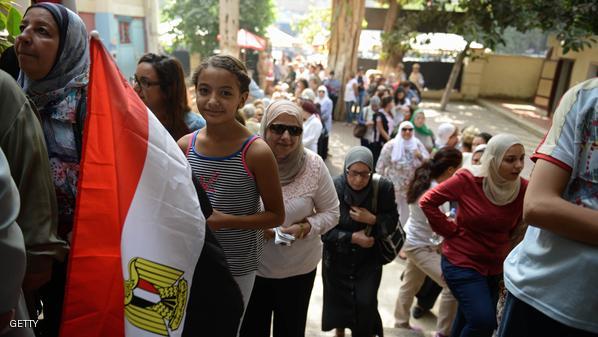The Egyptian Social Democratic Party (ESDP) has opened itself up to deep divisions by signing a document last Saturday, along with 12 other political parties, supportive of the ruling Supreme Council of the Armed Forces (SCAF).
The party’s leaders continue to defend their decision to sign the document, even after a senior member, Hani Shukrallah, publicly left the party on Tuesday in protest.
Saturday’s meeting, presided over by Armed Forces Chief of Staff Sami Anan, produced some concessions regarding upcoming elections, but failed to meet the main demands of political and revolutionary forces frustrated with the SCAF’s autocratic administration during the transition period.
Sally Sami, a member of the ESDP’s executive committee, told Al-Masry Al-Youm that she “strongly believes it took the right step” in attending the meeting and signing the statement, but that the final draft “was not as strong” as the party had wanted.
In a statement issued on Monday, the ESDP said it accepted the army’s invitation to the meeting “in the belief that dialogue with SCAF and political forces in Egypt is the way to build national accord.”
The SCAF agreed that party members now have the right to stand for election in those seats designated for individual candidates, rather than being restricted to seats reserved for party lists, in the upcoming parliamentary elections scheduled to begin in November
The agreement with the SCAF also stated that international and local groups will be allowed to observe, but not monitor, the elections.
But in a move that raised frustrations for pro-revolution forces, the military council declined to end Egypt’s 30-year state of emergency, saying only that the idea will be “studied,” and that trials for civilians in military courts would continue for “crimes laid down in the Military Law.”
Mohamed Abul Ghar, the ESDP’s leader, said he had to leave the meeting early, and subsequently discovered that a paragraph had been inserted into the statement reading, “The head of the signatory parties to this statement declare their complete support for SCAF and recognize the role SCAF has played in protecting the revolution and transferring power to the people.”
The ESDP is strongly critical of this paragraph, saying that the party’s relationship “has always, and remains, alternated between supporting some of [the SCAF’s] positions and rejecting others. We have engaged in dialogue with [the SCAF], just as we have protested against it,” Abul Ghar said in a statement on the ESDP’s official Facebook page.
The vagueness of the language used with reference to annulment of the state of emergency and ending of trials of civilians in military courts raises “doubts about the extent of commitment to the pledges made orally,” ESDP says.
Abul Ghar nonetheless signed the statement after 20 of the 30 members of the party’s executive board voted in favor of him doing so.
He added next to his signature, “I trust the armed forces, but I may also agree with or oppose SCAF decisions.”
Acknowledging the “anger, worry and disappointment” some party members feel, Abul Ghar said in a message posted on Facebook on Monday evening that he had received reassurances from the SCAF that a decree would be issued by the end of the week “clarifying in detail” the two paragraphs in the statement relating to the Emergency Law and military trials for civilians.
The ESDP leader writes in his message that “the real problem is that after revolutions, revolutionaries take power – but things are different in Egypt.”
Divisions between revolutionaries, and the decline of popular support for them are additional problems, Abul Ghar says.
The ESDP is trying to combat these problems by gathering together all forces calling for a civil state, engaging in dialogue, and fighting with the SCAF “in order to win the biggest possible number of gains.”
The political parties that attended Saturday’s meeting were strongly criticized by many revolutionaries for being too conciliatory towards the military council and not pressing for greater concessions.
The criticism has highlighted the debate surrounding the role of political parties post-revolution, in what is viewed by some commentators as a floundering transition process compromised by SCAF hegemony.
Some suggest that by engaging with the SCAF while military trials of civilians continue, the state of emergency has not been annulled and a clear timetable for the transition process has not been produced, political parties are acquiescing in an attempt by the SCAF to window-dress its intransigence.
Sami, the member of the ESDP’s executive committee, disagrees.
“[Political parties] have aims and seek power because they have goals for the nation,” Sami said. “As part of a political party, you are part of the state, and if you isolate yourself you’re not part of the discussion, you’re not able to influence.”
That sentiment has been backed by some observers. Sherif Younes, a professor at Helwan University, said that resignations in response to the signing of the statement are a sign of “political immaturity.”
“Parties haven’t crystallized their position ideologically and organizationally yet, and that’s why they over-rely on the party leadership,” Younes said. “The solution is to build those parties and support democratic mechanisms within, rather than withdraw in response to a particular situation.”
Sami says that the ESDP “strongly believes it took the right step” in attending the meeting and signing the statement, but that the final draft “was not as strong” as the party had wanted.
She stressed that the meeting produced some concessions from the SCAF and that the ESDP “put SCAF in a corner” by extracting from it a promise that the statement’s provisions on the Emergency Law and military trials of civilians would be clarified.
In a note published on his Facebook page, Hani Shukrallah, a prominent intellectual, listed ten criticisms of the statement and the political party’s decision to sign it.
Shukrallah, who is the managing editor of the Al-Ahram Online news website, resigned from the ESDP in protest.
“Other than backtracking on Article 5 of the elections law [governing who can stand for the individuals seats], the statement is not a genuine response to the demands of the revolution,” Shukrallah writes.
The most dangerous aspect of the statement is its provisions on the state of emergency, Shukrallah writes.
“Signing the statement can only mean that the political parties accept the continuation of the state of emergency,” Shukrallah writes.
He concludes by saying that the signing of this statement “strongly suggests that the political parties are sacrificing the revolution and its demands… for limited party aims that in reality boil down to removing possible competitors from the playing field and thus increasing the share [of seats] for parties taking part in the next parliament.”




